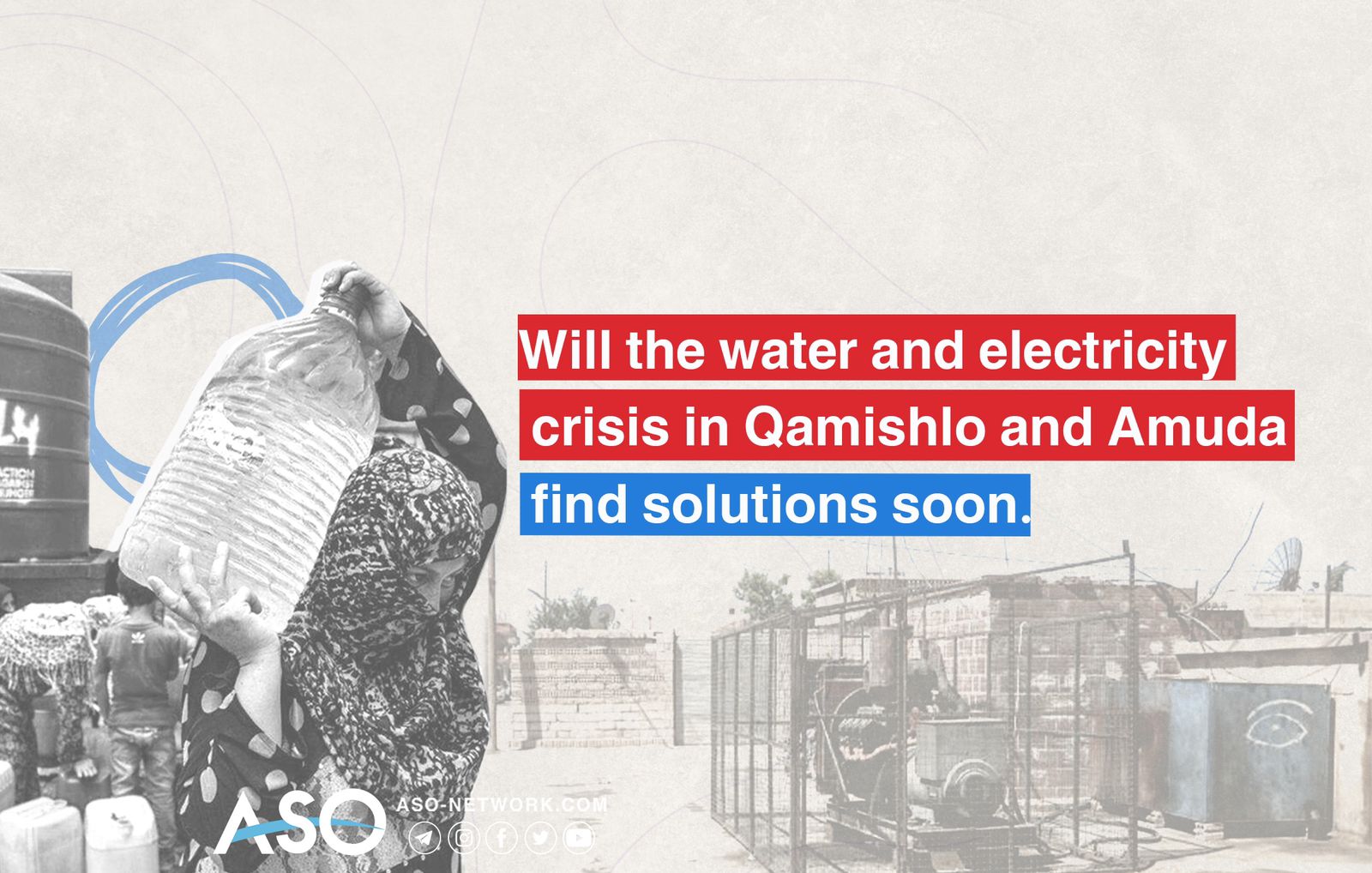Blog
Will the water and electricity crisis in Qamishlo and Amuda find solutions soon

The suffering of the people in the city of Qamishlo / Al-Qamishli (North-East Syria) is exacerbated in light of the electricity and water crisis in light of the deteriorating economic situation, which is constantly deteriorating. Facing the economic situation, low income, and the frequent rise in prices was not only the reason for the suffering of the people of the city, but it has become an electricity crisis. Homes and drinking water are a source of concern for many residents.
The bombing of the Turkish marches, which targets the region, and no longer excludes vital installations, oil wells and fuel production stations, has led to the almost complete loss of main electricity from the region, which is basically limited in terms of operating hours and many malfunctions.
This situation made amperage electricity (subscription) an urgent necessity to confront the summer heat and the need for electricity in the winter, with the inability to obtain abundant amounts of fuel.
However, the difficult economic circumstances of most people do not enable them to participate sufficiently, and they participate for a few hours that do not meet their complete daily needs. The majority subscribe to the eight-hour system, which is few and insufficient.
There is a different system of hours in using amps of electricity (8 hours, 16 hours, 24 hours) and the material differences in the subscription double. The higher the subscription rate, the greater the financial value of the monthly subscription.
Also, relying on amps is a subscription system in which large generators give amps to the neighborhoods, and these generators Basically, it is not a sustainable solution because it is harmful to the environment and climate and results in emissions that harm society and cause diseases, according to health workers.
In the summer, power outages cause cases of sunburn and poisoning in children, and some people are sometimes forced to drink hot water.
Some popular homes in the outskirts remain without an amperage subscription due to the deteriorating economic situation for them. Most of them are day laborers, and their wages do not allow them to participate, and they remain vulnerable to heat waves, sunburn, and cases of child poisoning.
This summer, the city witnessed cases of child poisoning caused by the extreme heat. Many blacksmith workers and workers in professions that require continuous electricity left their jobs due to the loss of public electricity and the high cost of subscribing to amperes, which exacerbated the living, health and economic problem for most of the people.
With regard to water, the decline in water pumping and the decline in its quality have had a negative and direct impact on the lives of the city’s residents. The pumping hours are short and do not allow water to reach everyone. The frequent breakdowns and weak infrastructure have exacerbated the problem, as some neighborhoods do not receive water well in the summer, in addition to the failure to use rational plans in water use contributes to significant waste.
In addition to this, there are negative health outcomes resulting from excessive rationing of household water and the tendency to purchase water from mobile tankers, often of unknown origin, which are not subject to drinking water quality standards, which threatens the development of skin and kidney diseases, especially among the elderly and children.
Read the full report here
